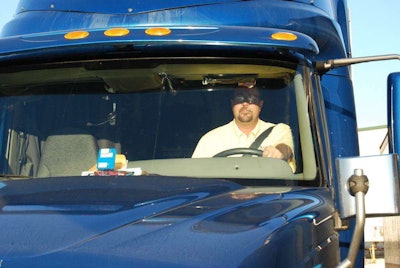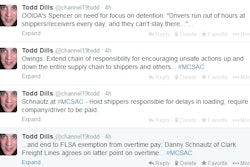
A new federal report recommends the Department of Transportation and the Occupational Safety and Health Administration evaluate collaboration agreements regarding whistleblower claim investigations.
Transportation workers who believe employers have retaliated against them for whistle blowing can file a claim with OSHA’s Whistleblower Protection Program, which coordinates with the appropriate U.S. agency for investigations.
The current surface transportation reauthorization act required the Government Accountability Office report on OSHA’s interagency coordination for these claims. In a March 19 report to Congress, the GAO recommended transportation and labor departments evaluate memorandums of agreements to ensure best practices for working together.
Trucking has more whistle blowing claims than other transportation sectors, partly because it represents 2.2 million employees, while aviation accounts for 1.1 million workers and rail for 287,000 employees. Also, one union trucking official told the GAO long-haul truckers and owner-operators may be more aware of whistleblower rights than those in other areas of trucking.
Still, industry stakeholders said truckers may break safety regulations to avoid retaliation from their employers, such as including companies filing fictitious trucker reports and black-listing truckers.

One unnamed spokesman for owner-operators noted truckers new to the industry may be more likely to file whistle blower complaints because more experienced truckers are more fearful of retaliation. Also, newbies may be more aware of federal protection for whistleblowers because the Federal Motor Carrier Safety Administration began requiring this training for entry-level commercial drivers in 2004.
Trucking and other industry stakeholders attributed the high number of dismissed claims to inconsistent investigation practices and significant differences in fairness of investigations among OSHA’s regional offices.
Recently, OSHA began meeting with transportation representatives to gauge the effectiveness of existing legislation in addressing practices that threaten employees’ ability to raise safety concerns.
Neither OSHA or DOT indicated agreement or disagreement with the report. Click here to read the report in full.
Expediting response time to both OSHA and DOT whistleblower hotline calls from drivers was a topic of discussion at the February meeting of the Motor Carrier Safety Advisory Committee. Efforts to speed up response were recommended by MCSAC to FMCSA for potential consideration in the highway bill.








